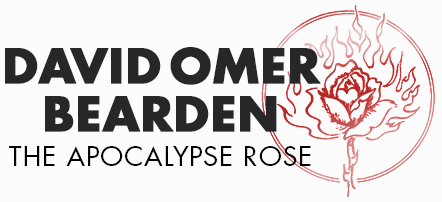First published in CAPRICE MAGAZINE,
Wichita Kansas, 1991.
The buckhorn inn
"That-which-regions
is an abiding expanse
which, gathering all,
opens itself, so that
in it openness is
halted and held,
letting everything
merge in its own resting."
– Martin Heidegger
"Mourning Polka."
– John Ashbery
The Buckhorn Inn is quiet now
in that stand of dark spruce
beside potholed old highway 435
it’s still for sale like it always was,
but no ghost tendril of blue
wood smoke reaches for the sky
from the bent cone-capped chimney
like it did when Wes Boika
could be found inside
behind remnants of swagged lace curtain
in a window whose neon sign
read “GIBBONS BEER”
busy tending his stove & bar,
serving Chesterfield Ales,
shots of jeżynówka
with a Rolling Rock back,
local gossip of interest
to tribal people, & Gennys
to a posse of steady customers,
rustic sawyers, night watchmen,
retired coal miners from the patch,
fisherman, gyppos, freebooters
of one kind or another,
& me, who frequented his place
for awhile when he was alive.
I ran into Wes over at Eagle Lake
where we worked as security guards
from 4 P.M. to midnight.
He was a wizened little Czech
somewhere at the far end of his 60’s
with a flat brush of black wire,
glittering feral eyes,
a devilish grin around a reeking
cigar stump clamped always
in short black stems of teeth,
& very little time to go.
Wes lived right here & now though,
in a present full of cronies
schemes & good times.
He sold me a plastic jug of sky blue
windshield wiper fluid once
brought out from under the bar, cheap.
He played hard-core slovak polkas
on the radio, & watched a silent T.V.
drinking one beer after another.
He kept beer near at all times,
bringing a big paper sackful
to the job secreted in his station wagon.
Out back of the guard shack
he would bolt to the parking lot
& fetch us back each a bottle,
giggling & chuckling wickedly
in the delicious knowledge
that once again
he was slickering The Man.
“Nobody on that midnight shift
has an elevator that goes all the way
to the top floor”, he snickered,
& headed back to the Buckhorn
for a few hours of serious drinking.
Sometimes I’d follow him on in
through an unused room
that had once housed a pool table
into a haven warm & close
from the banked iron stove
smelling of kerosene-base
floor swabbing solution,
the blonde skunk stink of beer,
pine & cigar smoke.
First he’d flip on the T.V.’s
blurred silent picture
then the radio, & start cracking
beers for the regulars
drifting in.
Andy Witko was his favorite
customer & best friend,
a rangy old retired highway
patrol trooper with one eye;
the only real career cop
on the security force
at Eagle Lake,
& the best man in the neighborhood.
Wes & Andy conversed
in shouted violent curses
& insults entirely,
Andy with disgusted air
of offended dignity
& Wes tittering slyly,
happy in their shared alcoholism
& years of maldisant buddyhood.
The other regulars laughed,
an appreciative audience
of old Pennsylvania homeboys
escaped from the wife.
Often these guys brought in stashes
of food to the Buckhorn Inn,
a tradition of long standing.
Hoagies, a coffee can
full of crab legs, roadkill,
a jar of pickled eggs
with beet slices, saganaki
of half a white pizza.
I once lifted some kosher mustard
from home & contributed it
toward the deck of olive-pimento
lunch meat spread out on butcher paper
at our midnight picnic stand
strewn with tabasco & beer
bottles, heaped ash trays, & tacky
with spilled liquor
& dripped sauces.
Multiples of enough
cheap poison cigars
took Wes out. He had a lung
removed at the V.A. hospital,
came home, continued to tend
his bar for a month or two
in a faded plaid bathrobe
& stocking feet,
swearing & laughing weakly,
& then he died.
The Buckhorn Inn
looks much the same
when I sail by on my way
back & forth to work at my present
job over in Stroudsburg;
the dead neon sign reading “GIBBONS BEER”,
the For Sale poster in the black window,
the ancient flat-bed truck out back
under the towering spruce trees.
But no ghost tendril of blue
smoke reaches for the sky.
* * *
Also see online publication This Land.

